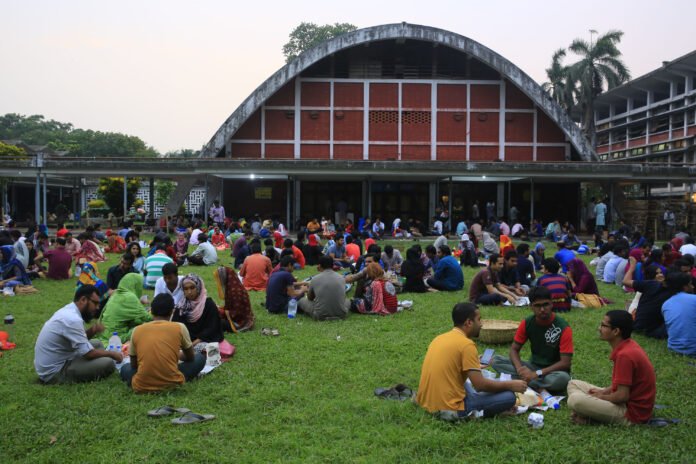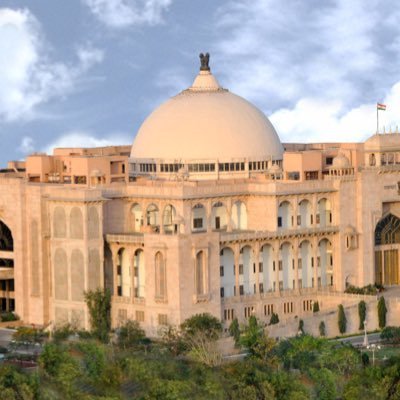DUCSU Elections Return After Six Years: A Big Moment for Dhaka University Students
Dhaka University is buzzing with excitement as the Dhaka University Central Students’ Union (DUCSU) elections kick off on Tuesday. It’s been more than six years since the last vote, and students are ready to choose their leaders. These elections on September 9 bring together various student groups, many linked to political parties in Bangladesh. Let’s dive into what’s happening and why it matters.
Several teams are in the race, including the Bangladesh Nationalist Party (BNP)-backed Jatiyatabadi Chhatra Dal (JCD). There’s also the left-leaning Pratirodh Parshad (PP), or Resistance Council, made up of seven organizations. Another key player is the Ganatantrik Chhatra Sangsad (GCS), or Democratic Student Council. This group features leaders from the Students Against Discrimination (SAD), who played a huge role in last year’s July Uprising that toppled former Prime Minister Sheikh Hasina. Many see GCS as connected to the National Citizen Party (NCP) because of their shared ideas and ties.
On the other side, the Islami Chhatra Shibir (ICS), the student arm of Jamaat-e-Islami (JeI), is contesting under the banner of ‘Oikkoboddho Shikkharti Jote’ (United Students’ Alliance). Their candidate for Vice President is Abu Sadik Kayem, a prominent figure from the July Uprising. His involvement has boosted his popularity, with journalists and other leaders praising him. ICS hopes to get strong backing from madrasa students, and they’re eyeing support from female voters and residents of Jagannath Hall.
Jagannath Hall is a big deal here—it has 2,222 voters, all from minority communities, making up about six percent of the total 39,874 registered voters. Women’s votes could swing the results, especially since they form 48% of the electorate, around 18,959 people.
A major twist? The Bangladesh Chhatra League (BCL), the student wing of the now-banned Awami League, isn’t officially running. Most of its top leaders are either in jail or hiding abroad after the uprising. But BCL supporters are watching closely. They want to stop ICS or the United Students’ Alliance from winning big. This election tests if BCL can still influence things from the shadows, especially with parliamentary polls coming up in February 2026. It’s like a real-world check on their power without being on the ballot.
The contests are fierce: 45 candidates for Vice President (including five women), 19 for General Secretary (just one woman), and 25 for Assistant General Secretary. Students are pushing back against old problems like hall domination and violence. Everyone wants a peaceful campus with debates, sports, cultural events, and fair access to dorm rooms—no more "gono" guest room culture that causes trouble. The younger crowd is clear: they reject violence and demand discipline for better learning.
DUCSU isn’t just any student union—it’s called the ‘Second Parliament’ of Bangladesh for a reason. Over the years, it led massive movements like the Language Movement (Bhasha Andolan), the Six-Points Demand (Choi Dafa Karmasuchi), and the 1969 Mass Uprising (Unosottorer Gono Abhyuthan), all key to Bangladesh’s independence. It even helped end military rule under General Hussain Muhammad Ershad. From Dhaka University’s start in 1921, student unions formed early, evolving into DUSU in 1923-24 and then DUCSU in 1953. In its 100-year history, elections have happened only 37 times. The last one was in 2019, after a long break due to violence, where Nurul Haq Nur from the Bangladesh Students’ Rights Council won Vice President and Golam Rabbani from BCL took General Secretary.
Right now, under the interim government, there’s some worry mixed with the hype. BCL activists in dorms could stir things up, and groups like JCD and ICS fear it might split student unity. The July Uprising showed how politics can manipulate student movements, and DUCSU often gets pulled into national drama. This vote could signal Bangladesh’s future: sticking to secular democracy or leaning toward radical ideas like Sharia law. Political divides are still strong, but students hope for real change on campus and beyond.



